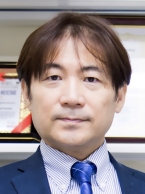
Prof. Kenji Suzuki
Institute of Science Tokyo, Japan
Kenji Suzuki, Ph.D. worked at Hitachi Medical Corp, Aichi Prefectural University, Japan, as a faculty member, in Department of Radiology, University of Chicago, as Assistant Professor, and Medical Imaging Research Center, Illinois Institute of Technology, as Associate Professor (Tenured). He is currently a Full Professor (Tenured) & Founding Director of Biomedical Artificial Intelligence Research Unit, Institute of Integrated Research, Institute of Science Tokyo, Japan. He published more than 395 papers (including 125 peer-reviewed journal papers). He has been actively researching on deep learning in medical imaging and AI-aided diagnosis in the past 25 years, especially his early deep-learning model was proposed in 1994. His papers were cited more than 16,000 times, and his h-index is 63. He is inventor on 37 patents (including ones of earliest deep-learning patents), which were licensed to several companies and commercialized via FDA approvals. He published 16 books and edited 20 journal special issues. He has been awarded numerous grants including NIH, NEDO, and JST grants, totaling $8M. He serves as Editors of more than 20 leading international journals including Pattern Recognition and AI. He chaired 110 international conferences. He is a Fellow of IARIA. He received 25 awards, including 3 Best Paper Awards in leading journals.
